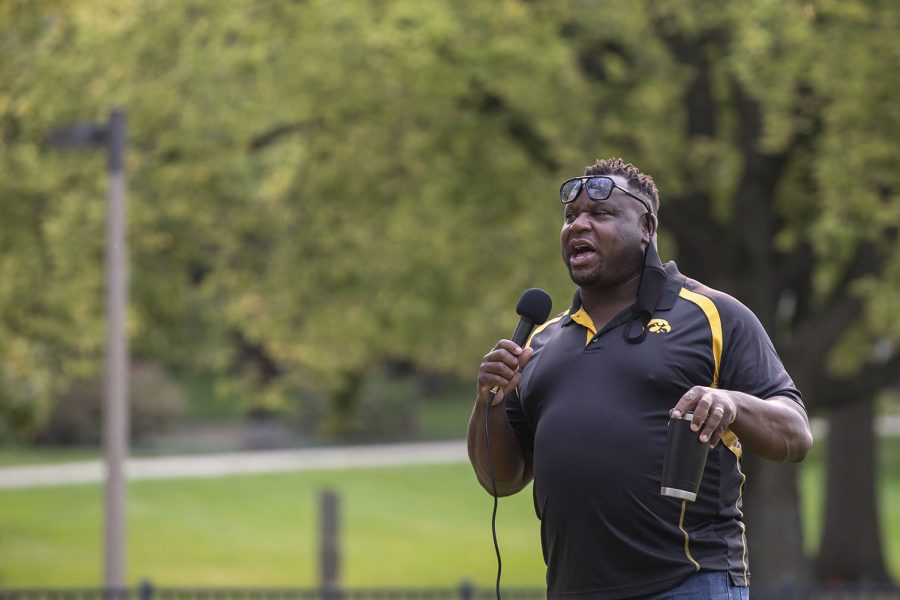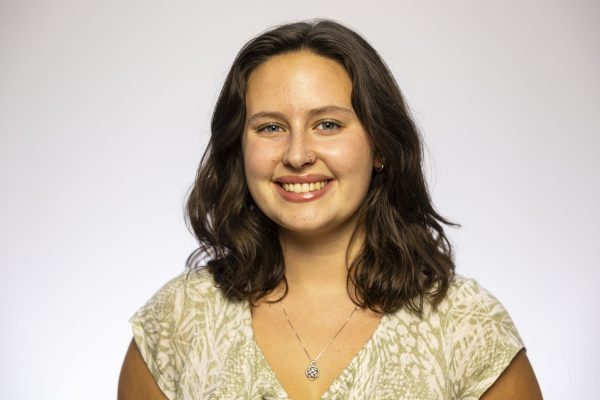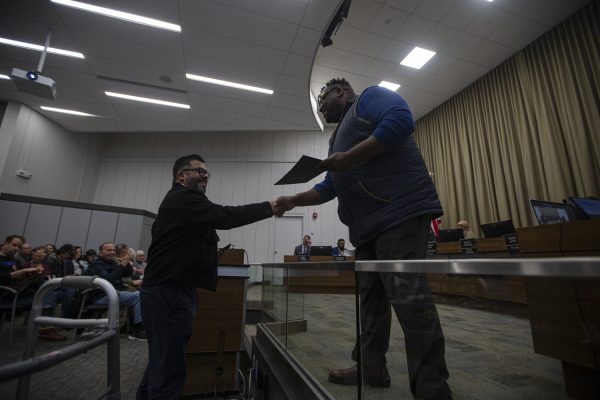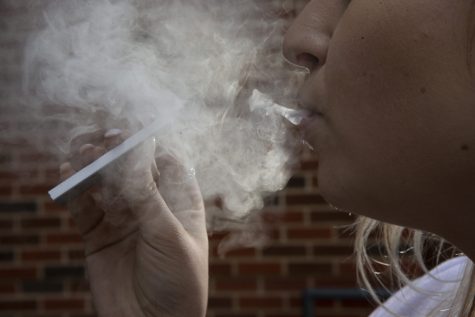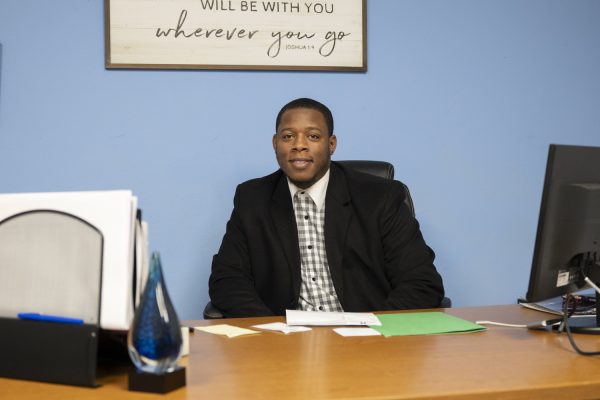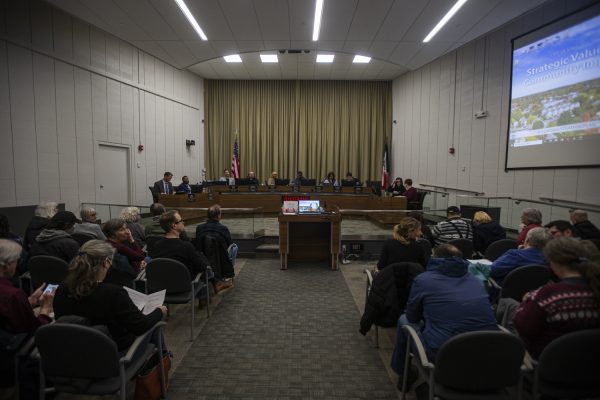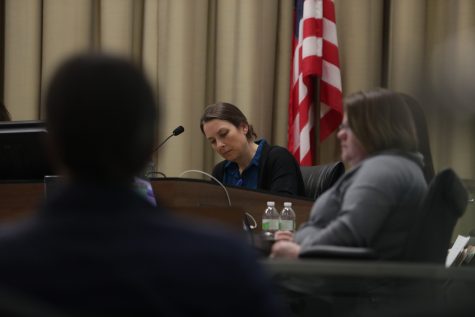Student government partners with city council for listening post on community policing
City Council members, Undergraduate Student Government members and law enforcement met to discuss policing in the Iowa City and University of Iowa communities.
Mayor Bruce Teague gives opening remarks during a listening post about community policing in Hubbard Park on Saturday, Sept. 26, 2020. Hosted by Iowa City Council, USG President Connor Wooff was in attendance, as well as ICPD Captain Denise Brotherton and UIPD Captain Mark Bullock. Conversation focused on improving mental health response instead of calling police officers and reducing police presence in the dorms. (Katie Goodale/The Daily Iowan)
September 26, 2020
Members of the Iowa City City Council hosted a listening post focused on community policing, collaborating with the University of Iowa Undergraduate Student Government on Saturday in Hubbard Park.
There were roughly 20 attendants, including Mayor Bruce Teague and City Councilors Janice Weiner and Pauline Taylor. UI Police Captain Mark Bullock and Interim Chief of the Iowa City Police Department Denise Brotherton represented the law enforcement during the discussion.
USG President Connor Wooff was one of the first to take the mic. He shared his perspective as a former Resident Assistant in the UI residence halls about how it can be traumatic for students to have police walking the halls.
He also discussed the Reimagine Public Safety Action Committee at the UI. According to an announcement from the Office of Strategic Communication, the committee is looking into policies, practices, and structures to build a safe and inclusive campus. They are evaluating who should carry out duties associated with campus safety and inclusion. This structure will be in place by July 1, 2021.
“My goal is to really push the city to mirror what’s happening on campus,” Wooff said. “And granted the budgets are different, and the size of departments different, and the community that it serves is different, but we are seeing a really cool process on our campus and if the City of Iowa City can do that, that would be so beneficial to our entire city and community.”
UI student government and dozens of other student organizations called on the UI to cut ties with the Iowa City Police Department in June, after the department, under direction from the Iowa State Patrol, deployed tear gas on protesters. The UI pledged to reform its law enforcement relationships instead, citing that more than three-quarters of its student population lives off campus, under the jurisdiction of the city’s law enforcement agency.
This was the third of six Listening Posts the city council is holding, and the first one that partnered with USG. The next Listening Posts are scheduled for Sept. 29, Oct. 5, and Oct. 8.
Weiner said the issue of mental health and who should intervene during a mental health crisis has been brought up at every forum. Some speakers thought police should not be involved in mental health emergencies, while Brotherton said Crisis Incident Management Training and police partnership with social services prepares them for dealing with mental health situations.
“People are asking us to think critically about that response from the start,” Teague said of mental health crises. “From the time the call comes in, to who goes first out and then where do they go if there’s placement needed.”
Speakers at the forum discussed the way police officers engage with students downtown and the Medical Amnesty bill passed by the Iowa legislature in June, which prevents underage people from being punished for drinking when they are seeking help in alcohol-related emergencies.
“There’s a lot of things that I think the general public just don’t know about that goes into some of the activities that our police are already performing,” Teague said. “But nevertheless there is lots of opportunity for us to change how we’re policing in our community.”



